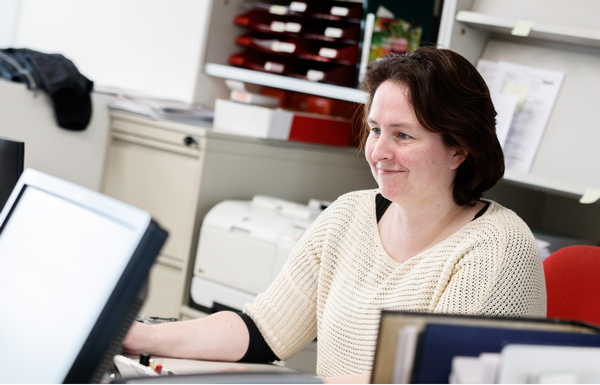Last week, the Dutch customs department declared it would scale back on some of its work. This was reported on the department's website. This scaling-back is being done responsibly, where possible. The measure is being taken in connection with the corona crisis. What impact is this having on the country's importers and exporters in the fruit and vegetable sector?
Currently, very few technical issues
WA Customs is a customs expediting company that covers the Netherlands and Belgium. There, they have not yet noticed much of an impact. The coronavirus is causing few technical problems for the process. "The custom's department's essential services are still up and running," says Alkine Barendrecht, a customs consultant at WA Customs. “Some countries have closed their borders for exports."
"They are, however, still open for vital goods such as fruit and vegetables. The transportation of these products is becoming more and more bogged down by long queues. These are at the European domestic borders. That is currently the case in Belgium. The congestion increases by several hours at times. It then does not improve for days." Click here for the latest truck traffic information.
 Alkine Barendrecht, customs consultant at WA Customs
Alkine Barendrecht, customs consultant at WA Customs
Kevin van den Berg is the team leader at Customs Support/Phimex. He has noticed that there are significantly fewer physical controls at customs. “Multiple physical control used to be done. Now, there are fewer than one. That is, of course, not negatively affecting the logistics process' speed. On the other hand, it is becoming increasingly difficult to reach the customs office. This needs to be done in case of questions or problems."
"We have an advantage in the Netherlands. Our processes have been almost entirely digital for some time now. Customs can then finetune the number of controls themselves. There are still some processes that need to be done manually. These could cause delays in the long run. That could happen in the customs staff is further scaled down. But that has not happened yet."
Europe
This crisis seems to, currently, be having a limited impact on customs processes in other European countries too. "We have offices in Belgium. But also in Germany, Poland, the United Kingdom, and the Netherlands. These are also reporting limited effects up to now. Shipments are continuing there too," says Kevin. “Some rules are temporarily being relaxed. So, instead of having to supply original documentation, it may also be sent via email."
"Our German offices are also reporting that the delays are not too bad. It is only at the outer borders that road transportation is sometimes significantly delayed. Additional checks are being performed there. We have added a page to our website. There, we keep our clients and business partners updated. We inform them of these temporary measures concerning the coronavirus outbreak."
Peru
Kevin has, however, been told that there are no customs officials present in Peru at the moment. There is, therefore, no-one to issue visas for preferential forms. "Should these documents not be issued at all anymore, it could make for higher import tariffs. For all other practical problems, it is important to consult with your customs agent. You can then find a workable solution and limit the risks."
Brexit
In recent months, WA Customs developed YourCustoms. This development paved the way for digitizing documents. It was done in anticipation of Brexit. Is that proving beneficial now? "These situations cannot be compared," says Alkine. “We have seen the link makes it easier to arrange documentation. But, with Brexit, we are dealing with a rapid increase in the number of documents. That is not what is happening now. Now, we are dealing with personnel loss and people working from home. Here, and at our clients' businesses."
Kevin has also noticed that the digital processing of data is currently beneficial. It speeds up the processing of that information. "We do see that a lot of our clients - both importers and exporters - have still not digitized all their processes. There is still a lot of room for improvement. Not just for Brexit. That also counts for all transactions to and from destinations outside of the European Union."
"We have noticed there is still a group that still has to prepare for Brexit. They, however, now have their hands full thanks to the corona crisis. Whether a postponement is needed depends on how this crisis goes, and what its impact will be. The world is facing a very turbulent time. In the short term, Brexit will not offer any peace of mind, for the time being," concludes Kevin.
For more information:
Kelsey Schenk Customs Support Group
Customs Support Group
11 - 19 Willem Barentsz Street
3165 AA, Rotterdam, NL
Tel: +31 (0) 107 988 300
Email: info@customssupport.com
Website: www.customssupport.com
Benny van Laerhoven WA Customs
WA Customs
6041 Hazeldonk
4836 LA, Breda, NL
Tel: +31 (0) 765 964 921
Email: info@wacustoms.nl
Website: www.wacustoms.nl
